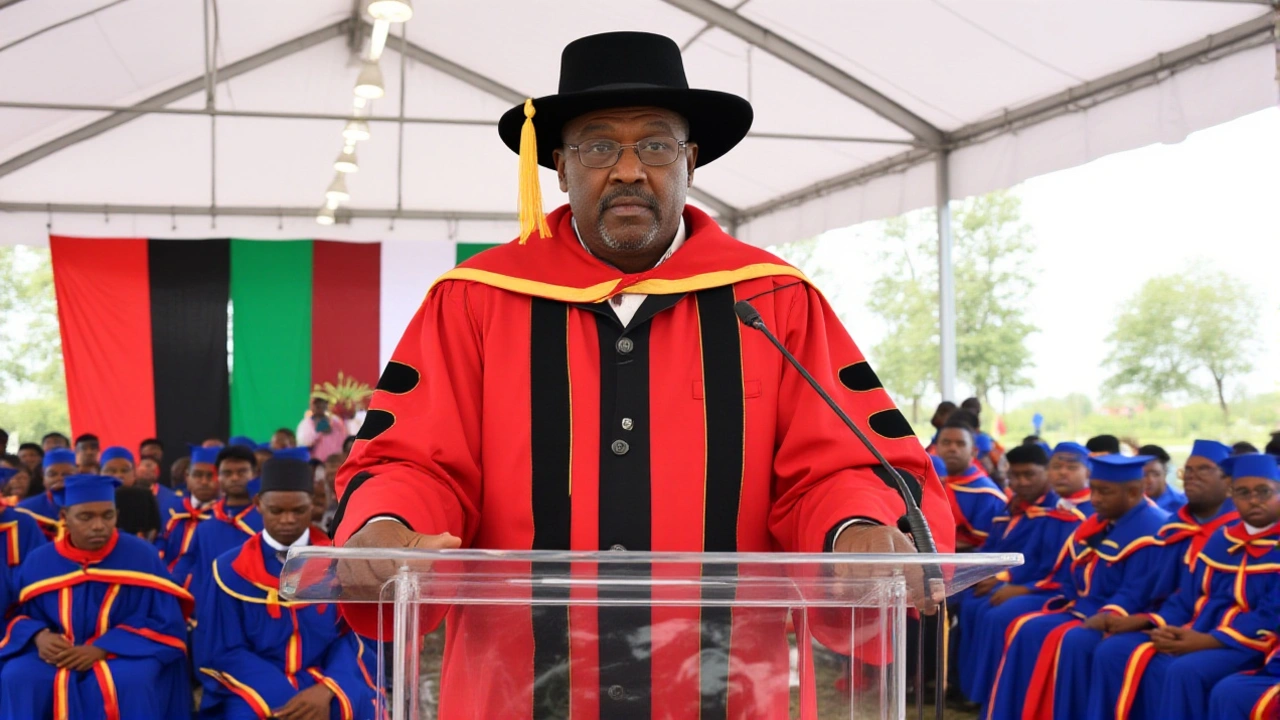Ministry of Education: African Policies, Reforms, and School Systems
When we talk about the Ministry of Education, a government department responsible for managing national education systems, setting curriculum standards, and allocating school funding. Also known as Department of Education, it’s the engine behind whether kids in Lagos, Lusaka, or Lilongwe get a real shot at learning. In Africa, this isn’t just about textbooks and teacher salaries—it’s about survival, equity, and who gets left behind. Every policy shift, budget cut, or new exam system flows from these ministries, and the impact hits every family, every village, every classroom.
Across the continent, ministries are wrestling with the same problems: too few teachers, crumbling buildings, and exams that don’t match real skills. But some are pushing hard. In Ghana, the Ministry of Education rolled out free senior high school to cut dropout rates. In Nigeria, the National Credential Verification Service was born out of a crackdown on fake certificates—something the Ministry of Education had to enforce alongside police and courts. Meanwhile, in Tanzania, the 2025 election saw education promises become political weapons, even as President Samia Suluhu Hassan’s landslide win raised questions about who really controls the education agenda. These aren’t isolated stories. They’re all connected through the same institutions: the Ministry of Education, the official body that sets rules for schools, hires teachers, and decides what children learn, and the social grants, financial aid programs that often support school fees and meals for the poorest students. When SASSA adjusts grant payments in South Africa, it directly affects whether a child can stay in school. And when Nigeria’s government sets deadlines to verify qualifications, it’s the Ministry of Education that has to clean up the mess.
What you’ll find here isn’t just press releases or official statements. These are the raw, real stories behind the headlines: the court cases that challenge education laws, the protests over unpaid teacher salaries, the sudden policy reversals after public outcry. You’ll see how the education funding, the money allocated by governments to run schools, train teachers, and provide learning materials actually moves—or doesn’t move—on the ground. Whether it’s a failed certificate verification system in Abuja or a new national exam in Tanzania, these are the decisions that shape a generation. No fluff. No spin. Just what’s happening when the Ministry of Education makes a move.

Ben Chumo resigns as Kenyatta University Council chair over ministry interference in VC selection
Ben Chumo resigned as Kenyatta University Council chair after the Ministry of Education interfered in the Vice-Chancellor selection process, sparking concerns over academic autonomy. The move impacts 42,000 students ahead of Prof. Paul Wainaina’s January 2026 retirement.
Categories
- Sports (146)
- Politics (22)
- Entertainment (20)
- World (15)
- News (10)
- Lifestyle (8)
- Business (6)
- Technology (3)
- Health (3)
- Environment (2)
Popular Articles



